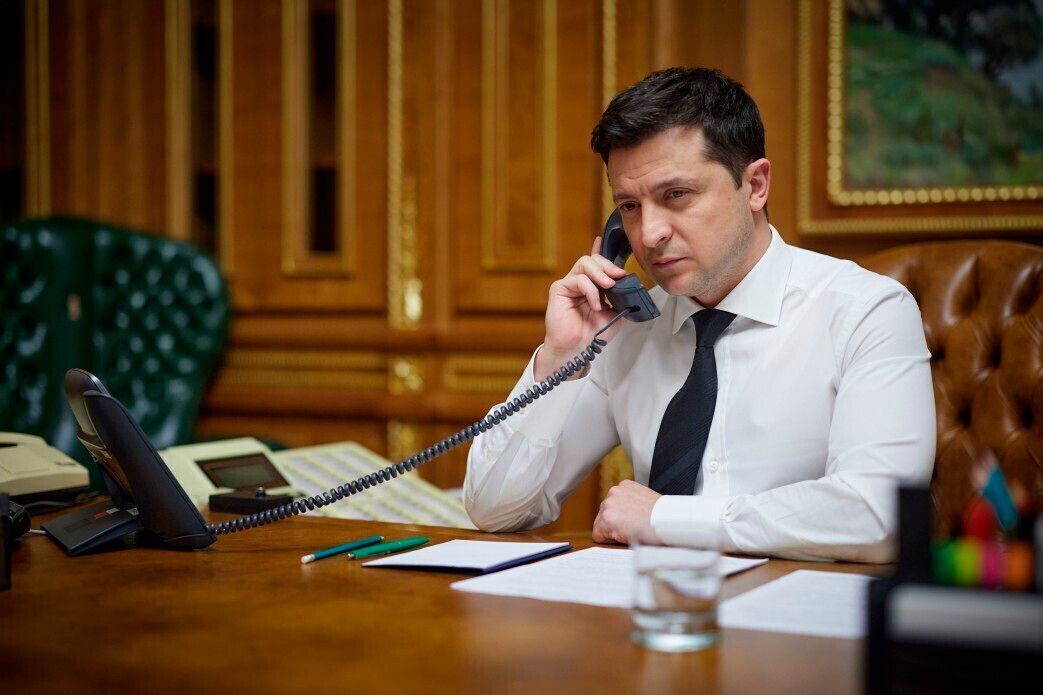As a political novice making an unlikely run to be Ukraine’s president, Volodymyr Zelenskyy vowed to reach out to Russia-backed rebels in the east who were fighting Ukrainian forces and make strides toward resolving the conflict. The assurances contributed to his landslide victory in 2019.
But after 2 years in office, Zelenskyy is watching his once-enormous support dissolve as Ukraine stands on what many fear is the verge of a Russian invasion that would not only take the rebel regions but possibly the rest of the country.
Also read: Ukraine Olympic team calls for peace, IOC wants no protests
To make matters worse, the incumbent who Zelenskyy defeated in 2019 has boldly returned to the country to face charges of treason and stir up opposition to him. Analysts, meanwhile, suggest that Moscow is seeking to bolster support among pro-Russia politicians in Ukraine and that the buildup of Russian forces near Ukraine’s border is aimed partly at destabilising the country’s politics.
Britain’s intelligence services claimed last month that Russia was seeking to overthrow Zelenskyy’s government and replace him with the leader of a small party that opposes Ukraine’s ambitions to join NATO and the European Union.
Also read: Airlines cancel, redirect flights to Ukraine as crisis escalates
Zelenskyy tried to calm the political turbulence Sunday by downplaying the stepped-up warnings from the U.S. about the imminent possibility of a Russian invasion.
“We understand all the risks,” Zelenskyy said, adding that if anyone has any “information regarding a 100% certain invasion, beginning on the 16th,” they need to come forward.
Also read: German leader travels to Russia, Ukraine as tensions grow
The manoeuvrings and the dismay among ordinary Ukrainians present a significant challenge for a country where democracy has been shambolic for decades. In the past 20 years, Ukraine has endured two significant uprisings — one that forced the rerun of a fraud-ridden presidential election and the mass, bloody protests that drove the Kremlin-friendly president to flee the country in 2014. Fistfights have broken out in parliament. Political alliances often shift and parties transmute into new entities.
“The biggest risk for Ukraine and the biggest risk for the sovereignty of our state … is destabilisation within our state,” Zelenskyy said last month.
Also read: German Chancellor Olaf Scholz travels to Russia, Ukraine as tensions grow
But Ukrainians have little confidence that Zelenskyy can ensure that stability. According to a January poll by the Kyiv International Institute of Sociology, only 30% of the country’s people want Zelenskyy to run for a second term and even fewer — 23% — would vote for him.
The continuing conflict in the rebel east and the prospect of a full-scale war aren’t the only factors in his declining support.
Zelenskyy initially made his name in Ukraine as a comic actor portraying on television a teacher who inadvertently becomes president after railing against corruption. In one analyst’s view, he erred as president by taking a similar path.
Also read: Putin gave no hint of Ukraine invasion in call with Macron: French officials
“Zelenskyy made a mistake by starting a confrontation with all the oligarchs of Ukraine at once, who control the main political forces, parties, and TV channels. This is a very dangerous, very risky game,” said Vladimir Fesenko, head of the Penta analytical centre.
Among the oligarchs Fesenko mentioned are Petro Poroshenko, the confectionary tycoon who preceded Zelenskyy as president and now faces treason charges for allegedly facilitating coal sales that financed the eastern rebels; industrialist Rinat Akhmetov, from Ukraine’s east who controls an opposition faction; and Viktor Medvedchuk, the country’s most prominent pro-Russia politician, whose three TV stations have been blocked for allegedly spreading misinformation and who is close to Russian President Vladimir Putin, the godfather of one of his daughters.
Also read: US denies sending submarine to Russian waters amid Ukraine crisis
These oligarchs are not unified — Medvedchuk and Akhmetov are affiliated with rival opposition factions, while Poroshenko’s presidency was marked by strong antipathy toward Russia. But many observers believe Moscow is trying to exploit any opposition to Zelenskyy.
However, analyst Volodymyr Sidenko of the Razumkov Centre said “the scenario of collusion between one of the Ukrainian oligarchs and the Kremlin looks unlikely, since there are no conditions for the formation of stable Russian-Ukrainian business chains.”







